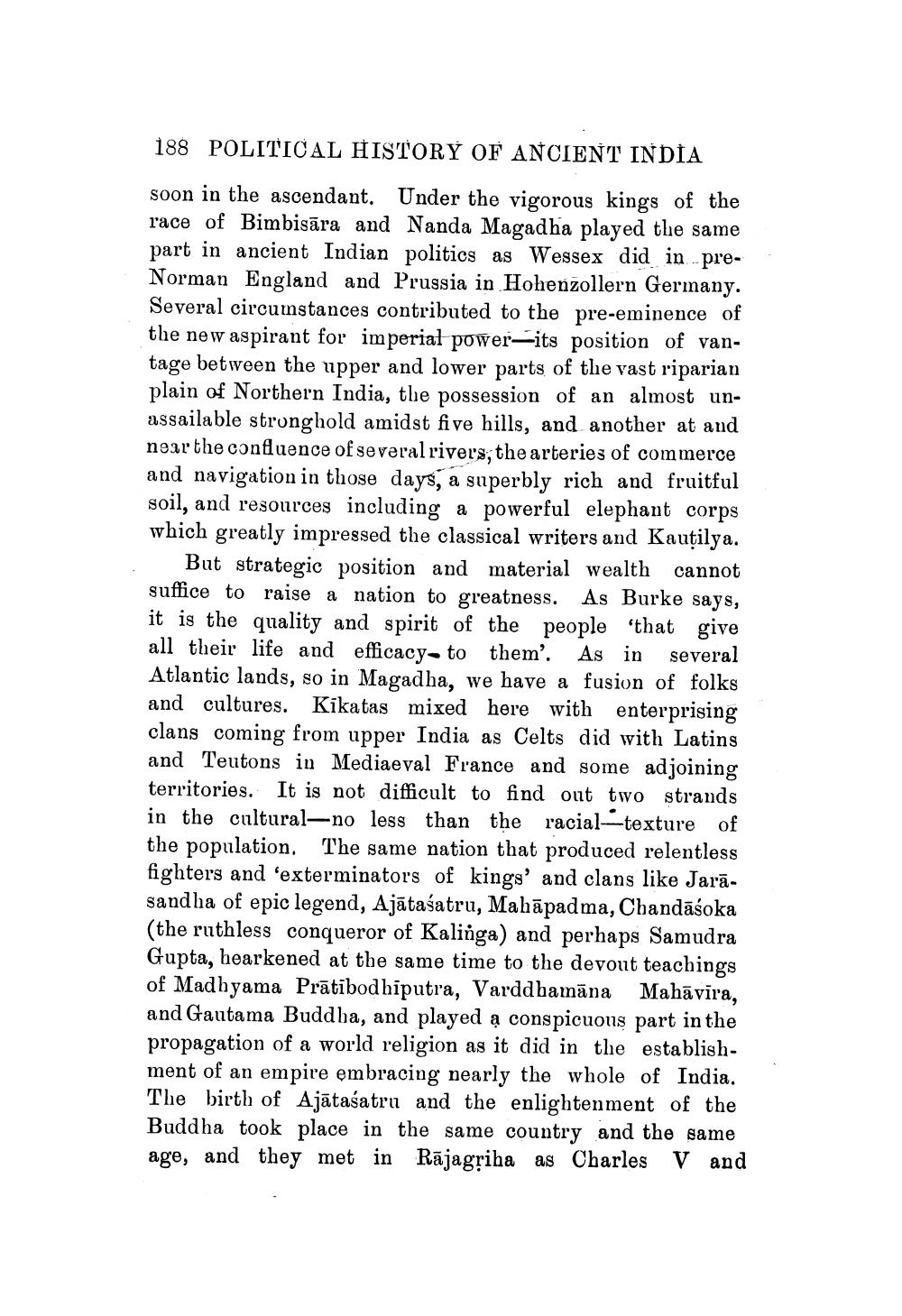________________
188 POLITICAL HISTORY OF ANCIENT INDIA
soon in the ascendant. Under the vigorous kings of the race of Bimbisāra and Nanda Magadha played the same part in ancient Indian politics as Wessex did in...preNorman England and Prussia in Hohenzollern Germany. Several circumstances contributed to the pre-eminence of the new aspirant for imperial power-its position of vantage between the upper and lower parts of the vast riparian plain of Northern India, the possession of an almost unassailable stronghold amidst five hills, and another at and near the confluence of several rivers, the arteries of commerce and navigation in those days, a superbly rich and fruitful soil, and resources including a powerful elephant corps which greatly impressed the classical writers and Kautilya.
But strategic position and material wealth cannot suffice to raise a nation to greatness. As Burke says, it is the quality and spirit of the people that give all their life and efficacy- to them'. As in several Atlantic lands, so in Magadha, we have a fusion of folks and cultures. Kikatas mixed here with enterprising clans coming from upper India as Celts did with Latins and Teutons in Mediaeval France and some adjoining territories. It is not difficult to find out two strands in the cultural-no less than the racial-texture of the population. The same nation that produced relentless fighters and 'exterminators of kings and clans like Jarāsandha of epic legend, Ajātaśatru, Mahāpadma, Chandāśoka (the ruthless conqueror of Kalinga) and perhaps Samudra Gupta, hearkened at the same time to the devout teachings of Madhyama Prātibodhiputra, Varddhamāna Mahāvīra, and Gautama Buddha, and played a conspicuous part in the propagation of a world religion as it did in the establishment of an empire embracing nearly the whole of India. The birth of Ajātasatru and the enlightenment of the Buddha took place in the same country and the same age, and they met in Rājagriha as Charles V and




